The world changed forever in November 2022, when the artificial intelligence research lab OpenAI released ChatGPT, an AI-powered chatbot. The technology wasn’t exactly new, but it was the first time it was available to the public in a user-friendly format—and the reception was enthusiastic, with more than a million users in less than a week! These users started posting on social media and sharing examples of the many things ChatGPT could do, including planning meals, creating computer programs, and writing blog posts. So, how would ChatGPT and the SLP fit together in this new era of technology?
Hmm. Writing blog posts? I asked ChatGPT to take a crack at the introduction for this one, and here’s what it came up with:
Welcome, dear pediatric speech-language pathologists, to a conversation that’s shaping the future of our profession! In today’s rapidly evolving landscape, where technology continues to redefine the way we work, it’s essential to stay ahead of the curve. We’re diving deep into the world of ChatGPT, an artificial intelligence marvel, and exploring how you can harness its powers ethically to enhance your practice in school settings. In this blog post, we’ll navigate the ethical considerations, potential pitfalls, and invaluable benefits of integrating ChatGPT into your toolkit. We’ll also share insights on how to introduce ChatGPT to your young students and provide a roadmap for getting started. So, grab your favorite beverage, settle in, and let’s embark on this transformative journey together.
Me again! Not bad, right? “Artificial intelligence marvel” made me giggle—apparently ChatGPT isn’t very humble. However, it IS a powerful tool capable of making our SLP lives easier. Some of us are probably using it daily, while others probably aren’t sure what all the fuss is about. To get on the same page, let’s start with a quick ChatGPT overview.
What is ChatGPT?
We encounter AI every day—when our phones recognize our faces, when Google gives us grammar suggestions, and when personalized advertisements pop up on our social media feeds. Of course, these examples (and others like them) don’t involve innate intelligence; they’re driven by algorithms that use data to make predictions.
ChatGPT takes this process to another level! It’s a large language model, meaning that it was trained on mind-boggling amounts of text (from the Internet and other sources), enabling it to respond to prompts in a way that sounds remarkably human—and a very knowledgeable human at that! The results are incredible to witness, but at the end of the day, ChatGPT is a prediction machine, using the billions of words from its training to figure out how to respond to a given input.
Getting Started with ChatGPT
Ready to see ChatGPT in action? Head to chat.openai.com to create a free account and get chatting! You may want to consider creating separate personal and work accounts, especially if you’re planning to use this tool with your students. (One of ChatGPT’s features is that it saves all of your chats, which is great for convenience, but not so much for privacy.) Before signing up with a work email, be sure to check out your employer’s specific ChatGPT policies, especially if you’re in a school setting.
Once you’re set up, you may want to experiment a bit, just to see what it can do! If you don’t know where to start, you could ask it to recommend a book, plan your meals for the week, or suggest destinations for a beach vacation.
ChatGPT and the SLP: Using AI to make Life Easier
Okay. You have your ChatGPT account, and you’ve done some chatting. Time to level up and use this tool to become a less-stressed version of the rockstar SLP you already are!
As we consider the possibilities, there’s one guiding principle I like to keep in mind. ChatGPT is an assistant, not a replacement. It doesn’t have clinical judgment, and it doesn’t know your students. For these reasons, it’s not a great option for writing goals, and it definitely can’t make eligibility decisions! But if your SLP life is anything like mine, you spend a frustrating portion of your day doing tasks that don’t require clinical judgment or expertise. These are the places where ChatGPT can shine.
In no particular order, here are some ideas for how to use your new ChatGPT assistant (please add yours in the comments!):
- Word lists: Do you need adjectives that end with /l/? Words with four syllables? Words that rhyme? Words with medial /s/? ChatGPT can help.
- Synonyms and antonyms: Provide a target word, ask your students to generate synonyms or antonyms, and ask ChatGPT to do the same. Compare results!
- Executive function helper: ChatGPT can break down the steps for any complex task, making it a great executive function support—for us and for our students!
- Special interests: ChatGPT is pure gold for connecting with students who have special interests (e.g., “Tell me 10 fun facts about roller coasters”)!
- Co-author: Students working on narrative could create a story with ChatGPT.
- Randomizer: Do you have a large group that always argues about who gets to go first? ChatGPT can generate names in random order (but be sure to use initials for privacy!).
- Getting started: Have you been putting off writing a difficult email because you don’t know how to start? Ask ChatGPT to craft the first few lines, and you can take it from there.
- Articulation conversation: ChatGPT can provide sound-loaded jokes, stories, or discussion questions for conversation-level articulation students.
- Decoding diagnoses: Do you have a new student with a complex or rare diagnosis? Ask ChatGPT to explain it to you in simple terms.
- Group member: ChatGPT can “be a student” if you need an extra participant in a debate, game, or discussion.
- Fresh data: When getting baselines and monitoring progress, best practice is to use untreated words/stimulus items—but time and resources are limited, and we don’t always have easy access to multiple sets of materials. ChatGPT to the rescue! Ask it for what you need (e.g., “10 ‘what’ questions”), look it over to ensure it works, and get your data.
ChatGPT and the SLP: Caution and Caveats
Some SLPs are probably hesitant to use ChatGPT, and that makes sense! It’s a powerful tool that changed the educational landscape overnight. When it was first released, a number of school districts blocked and banned it, although most of them have since reconsidered.
Whatever our personal feelings are about ChatGPT, it’s not going anywhere. After all, it reached 100 million users in two months! Rather than downplay its impact, our best strategy might be to understand the risks and drawbacks, so we can engage with it safely and ethically—and help our students do the same. With that in mind, let’s explore some of ChatGPT’s possible perils.
As with any web-based tool, privacy is a key consideration when using ChatGPT. OpenAI keeps and reviews the queries that are entered, and ChatGPT is not generally considered to be HIPAA- or FERPA-compliant, so it’s a good idea to avoid entering personal information or PHI, and to coach students to do the same.
Another common concern with ChatGPT is the potential for cheating on assignments. We often work with students who are struggling at school, and they may be tempted to see ChatGPT as a panacea. We can support them by teaching a thoughtful approach to using ChatGPT, reminding them that it’s a tool to support their learning, not a replacement for it. We can also model transparency in our own use of ChatGPT, both with students and colleagues, and be ready to explain how and why we use it.
It’s also important to know that ChatGPT could disproportionately affect our most vulnerable students, in both positive and negative ways. Technology can exacerbate equity gaps, and students who don’t have the resources to access tools like ChatGPT at home may be at a disadvantage. At the same time, students who are learning English or who need extra support could be the ones who benefit from ChatGPT the most—if we teach them how to use it, and ensure they have access. These are complex issues, but awareness is the first step!
In addition to exercising caution in how we use ChatGPT, we also need to recognize the problems with ChatGPT itself. It was partially trained with text from the Internet, and as we know, the Internet is not always warm and fuzzy. Or accurate! The possibility for biased, misleading information is always there. Sometimes, ChatGPT will just make something up and present it as fact (very convincingly), in a process known as a hallucination. The good news is, ChatGPT’s troubling aspects provide opportunities to help our students to learn skills like researching, fact-checking, and identifying bias.
Earlier in the post, I joked that ChatGPT isn’t very humble, and this is mostly true. Technically, it actually isn’t humble at all, because it doesn’t have personality traits or core values or critical thinking skills—-it isn’t human! We know this, of course. It’s also shockingly easy to forget, especially after interacting with it for a while. With that in mind, I’ll close with a little pep talk.
You are irreplaceable! (WillRobotsTakeMyJob.com backs me up on this.) Your work as a living, breathing SLP makes a tremendous difference. Let’s celebrate our uniquely vital skill sets, and use ChatGPT to clear space for a little more joy every day.
One last thought: AI is complex and rapidly changing—this post is probably already out of date! Here are some resources for ongoing learning:
ChatGPT Basics:
- ChatGPT FAQs from OpenAI
- Interview with ChatGPT (Time magazine)
- Glossary of Artificial Intelligence Terms for Educators
- A Short History of ChatGPT: How We Got to Where We Are Today (Forbes)
- A Very Gentle Introduction to Large Language Models
ChatGPT for Educators:
- The AI Education Project
- Artificial Intelligence and the Future of Teaching and Learning
- Empower Educators to Explore the Potential of Artificial Intelligence
- How AI Could Save (Not Destroy) Education—TED Talk from Sal Khan
- International Society for Technology in Education
Ethics and Concerns:
- AI & You
- How to help students think critically about AI
- Who is Making Sure the AI Machines Aren’t Racist? (New York Times)
Want to stay in the loop for new speech therapy ideas and inspirations? I have put together a free Digital SLP podcast to share insight and tips on implementing your speech therapy sessions. If you are looking for fun and interactive speech therapy materials that students and SLPs both will love, check out what the Digital SLP® membership site has to offer, or sign up for our free trial now. Alternatively, check out our TpT store.

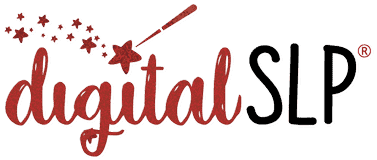
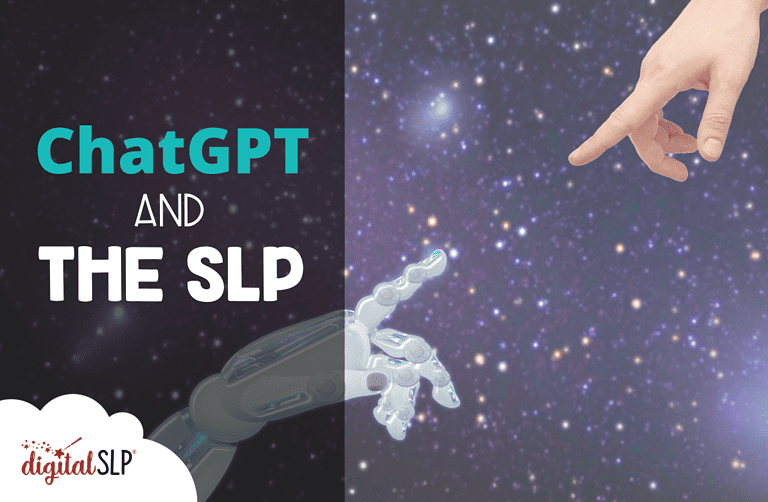
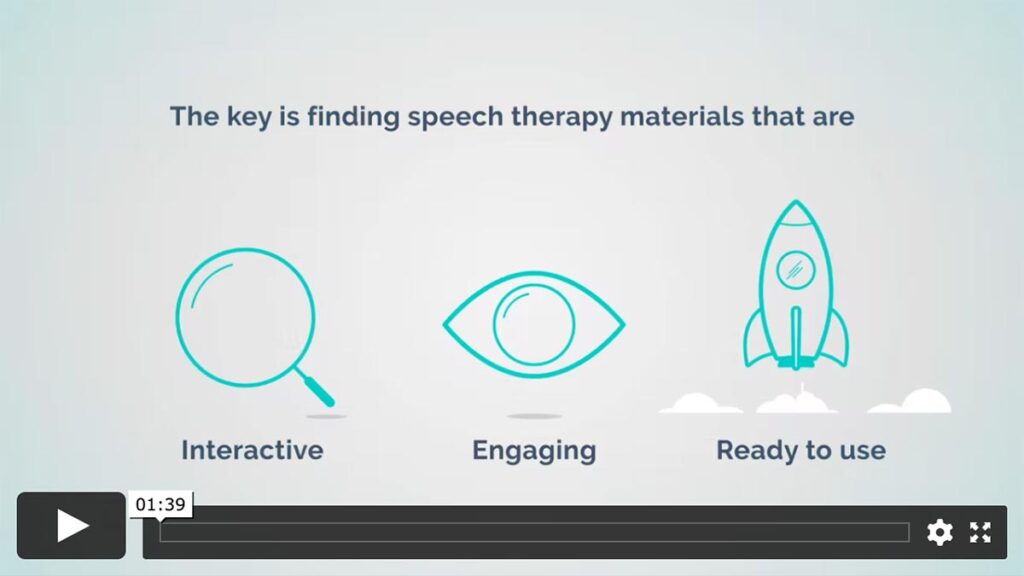
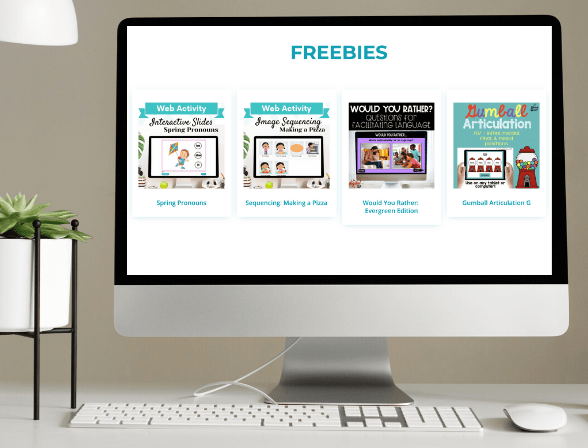


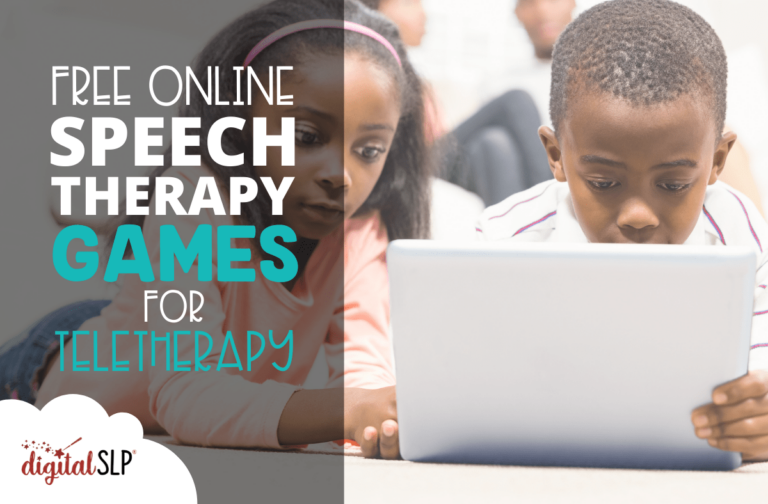

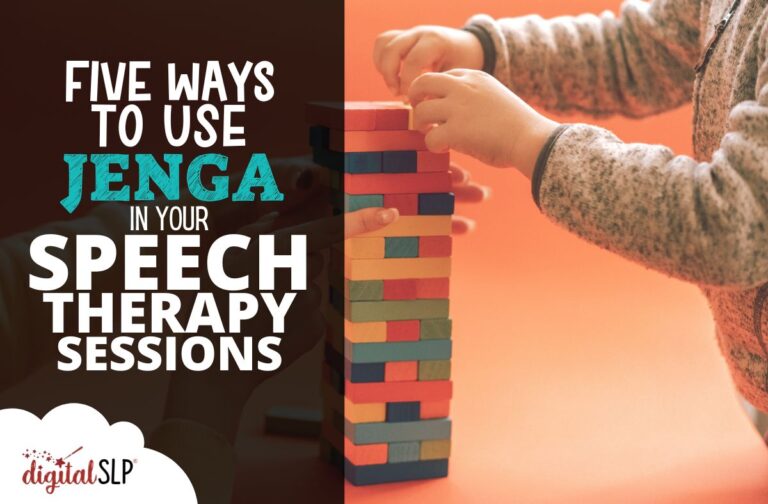
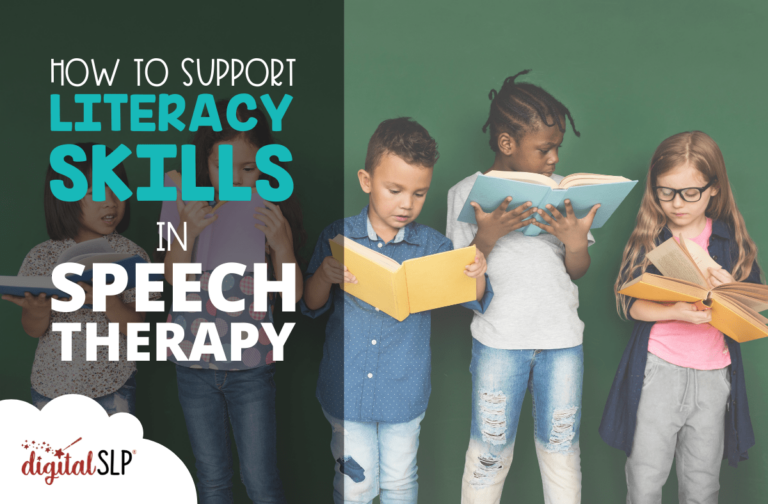
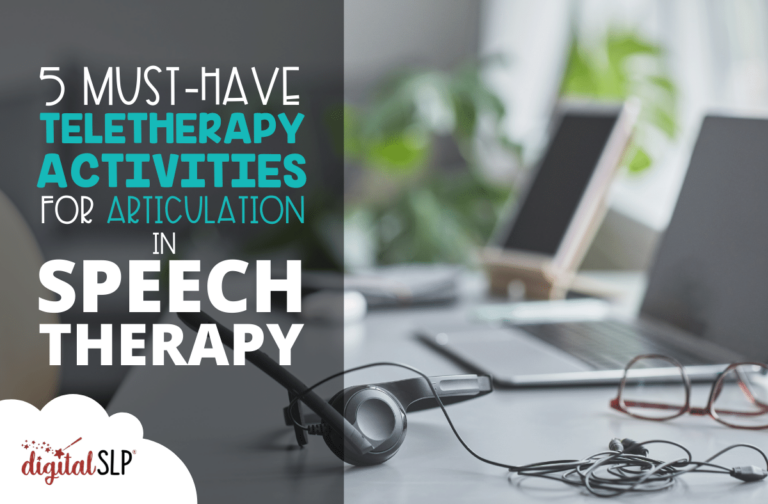
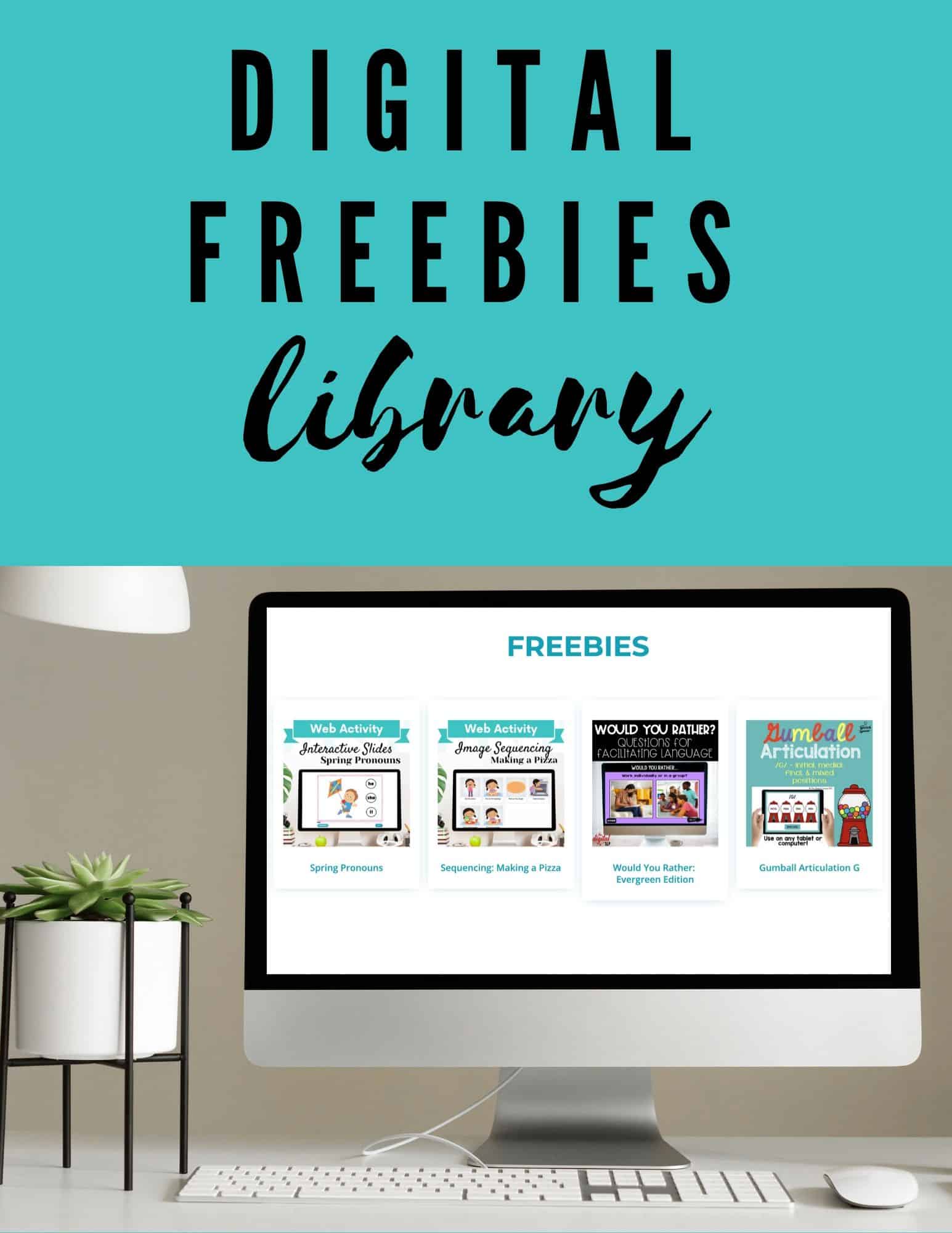
Recent Comments